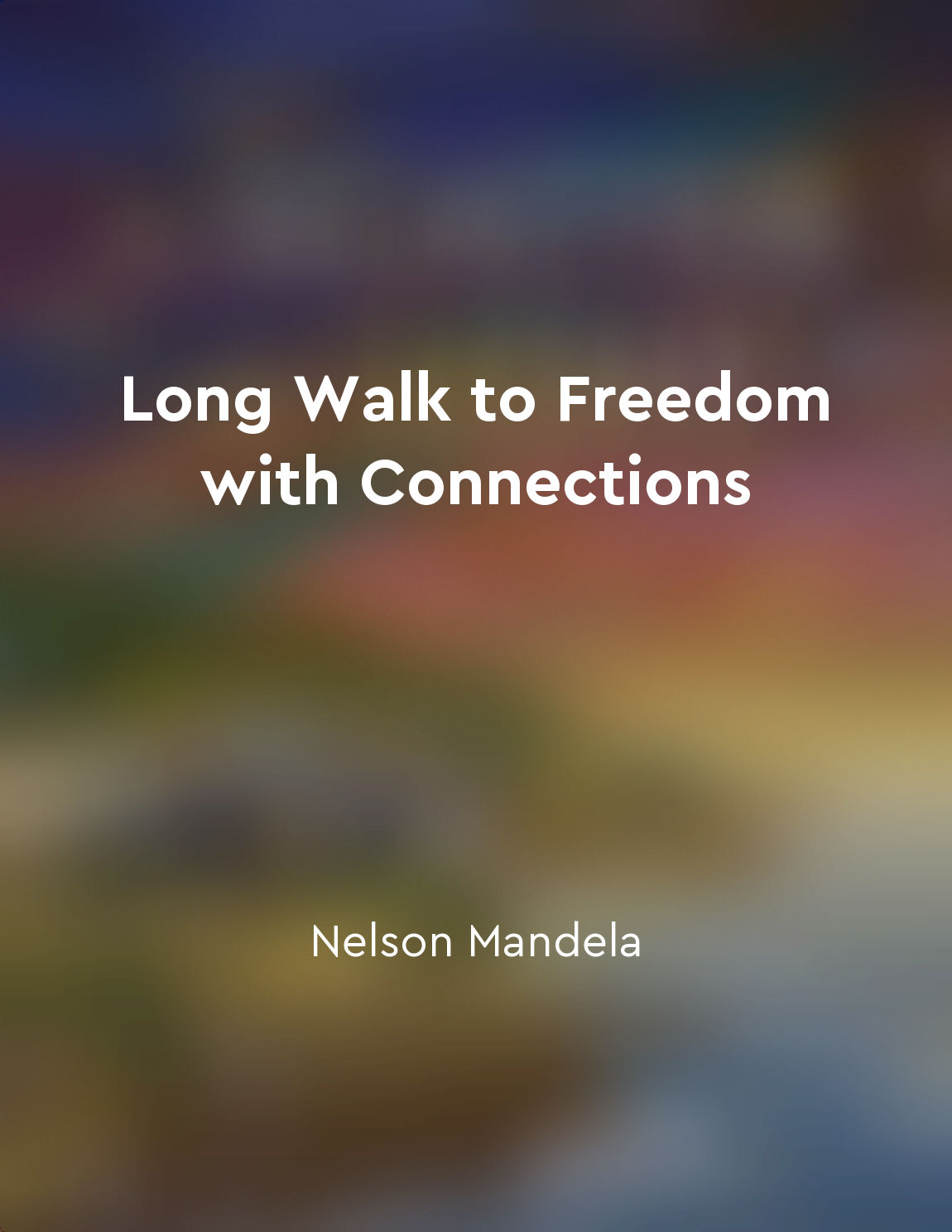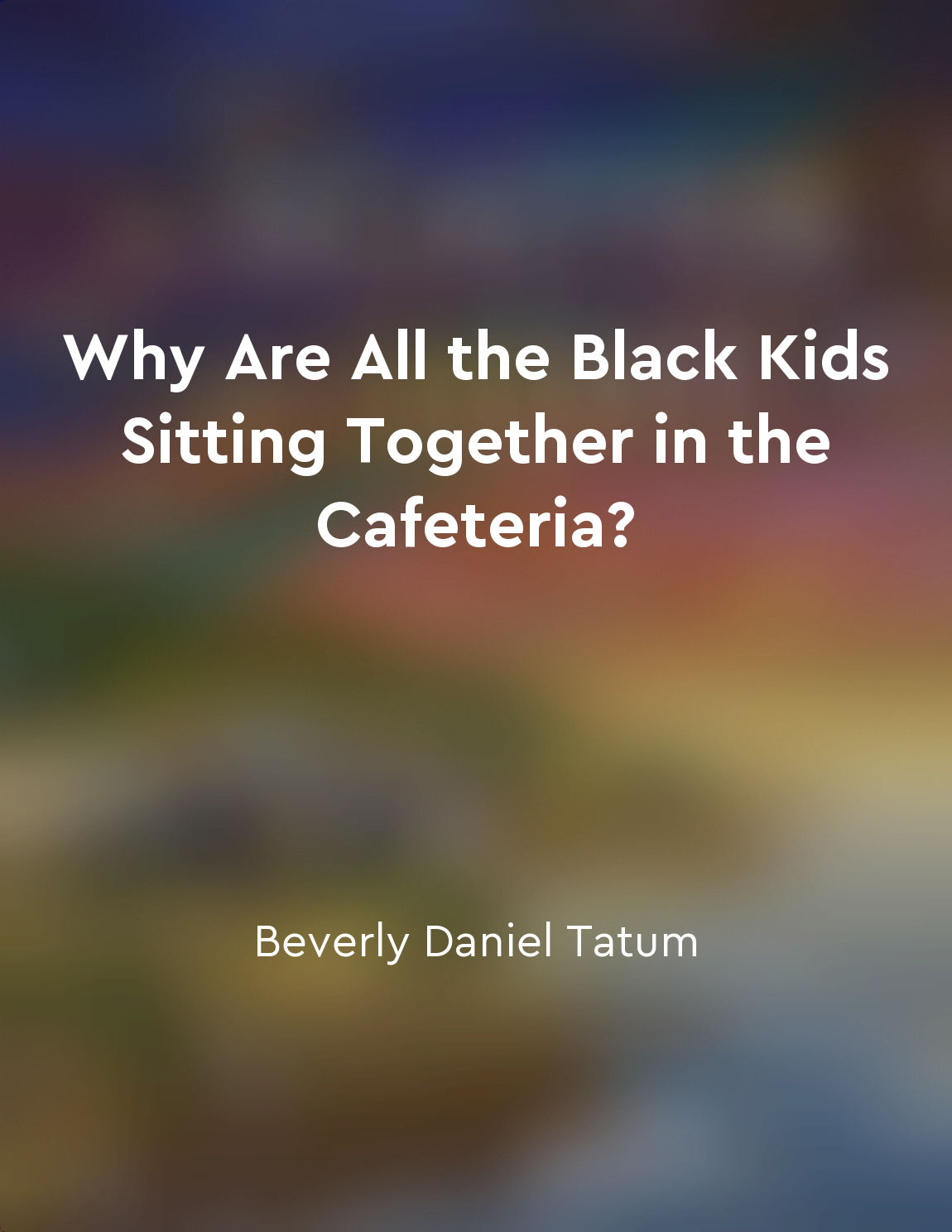Collaborative efforts are needed to dismantle systemic barriers in education from "summary" of Race, Class, and Education by Kenneth J. Meier,Joseph Stewart,Robert E. England
To address the systemic barriers in education, it is essential for all stakeholders to come together and work collaboratively. This includes educators, policymakers, community leaders, parents, and students themselves. Each of these groups has a unique role to play in dismantling the obstacles that prevent equal access to quality education for all students. Educators must be willing to critically examine their own biases and assumptions that may inadvertently perpetuate inequality in the classroom. They must also be open to implementing strategies and practices that foster a more inclusive and equitable learning environment for all students, regardless of their race or socioeconomic background. Policymakers play a crucial role in shaping the educational landscape through funding allocation, curriculum development, and policy implementation. It is imperative that they prioritize equity and social justice in their decision-making processes to ensure that all students have the resources and support they need to succeed academically. Community leaders can also contribute to dismantling systemic barriers in education by advocating for policies that promote diversity, inclusion, and cultural responsiveness in schools. By engaging with local stakeholders and building partnerships with educational institutions, community leaders can help create a more supportive and empowering educational environment for all students. Parents have a critical role to play in supporting their children's education and advocating for their needs within the school system. By actively participating in their children's education, attending school events, and communicating with teachers and administrators, parents can help ensure that their children receive the support and resources they need to thrive academically. Finally, students themselves have a voice in shaping their educational experiences and advocating for changes that will benefit all students. By speaking up about their own experiences with systemic barriers in education, students can help raise awareness and mobilize others to take action towards creating a more equitable and inclusive educational system.- Dismantling systemic barriers in education requires a collective effort from all stakeholders involved. By working together towards a common goal of equity and social justice, we can create a more inclusive and empowering educational environment for all students, regardless of their race or socioeconomic status.
Similar Posts
The politics of knowledge influence educational practices
The ways in which knowledge is valued and transmitted within educational institutions are deeply intertwined with larger power ...

Be willing to sacrifice
To truly make a difference in this world, we must be willing to make sacrifices. Sacrifice is not always easy or comfortable, b...
The path to improvement begins with understanding
Improvement in teaching practices can only be achieved through a deep understanding of the complexities involved. This understa...
Workers are pitted against each other
The notion that workers are set against each other is a central theme in understanding the dynamics of capitalism. This concept...
LGBTQ+ rights are integral to feminism
The fight for LGBTQ+ rights is not separate from the fight for feminism—it is a critical part of it. Feminism that does not inc...

Focus on humanitarian work
Humanitarian work was always at the forefront of my mind as I navigated the complexities of political struggle and personal sac...

Childhood struggles shaped who I am today
Growing up in poverty wasn't easy. There were days when I didn't know if we would have enough to eat or if we would have a plac...
Emphasizing the interconnectedness of knowledge
In exploring the interconnectedness of knowledge, Freire emphasizes the importance of understanding that knowledge is not isola...

Identity development is a continuous process
Identity development is a continuous process. It is not something that happens overnight or in a vacuum. Instead, it is a journ...
Critique of traditional banking education
Freire's critique of traditional banking education is a fundamental aspect of his analysis of oppressive educational practices....

